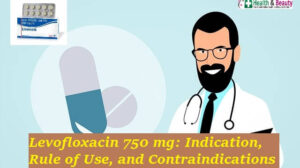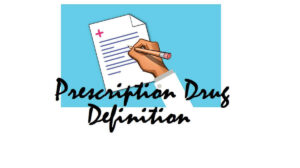
Prednisone Side Effects, Precautions, Attention, Contraindications, and Interactions – Prednisone is a drug to reduce inflammation in allergies, autoimmune diseases, joint and muscle diseases, as well as skin diseases. Prednisone is a type of corticosteroid drug.
Prednisone works by suppressing the immune system’s response, thus reducing inflammation. Prednisone can only be obtained by prescription.
Precautions Before Using Prednisone
- Do not use prednisone if you have an allergy to this drug or other corticosteroid drugs.
- Tell your doctor if you have or are suffering from kidney disease, liver disease, thyroid disease, infectious diseases, or heart failure.
- Tell your doctor if you have ever suffered from peptic ulcers, diverticulitis, or inflammation of the intestines.
- Tell your doctor if you have or are suffering from osteoporosis, Myasthenia Gravis, diabetes, or hypertension.
- Tell your doctor if you plan to vaccinate during prednisone use.
- Tell your doctor if you’re pregnant, breastfeeding or planning a pregnancy.
- Tell your doctor if you are using other medications, including herbal remedies and supplements.
- In case of a drug allergic reaction or an overdose after using prednisone, see a doctor immediately.
Prednisone Side Effects
In general, the use of prednisone weakens the body’s immune system so it can cause patients to easily get infected or experience worsening manifestations of a disease.
Side effects of high doses include high blood pressure, salt and water retention, and increased excretion of calcium and potassium.
Common side effects, which are often reported are changes in glucose tolerance, changes in behavior and mood, increased desire to eat, and weight gain.
Side effects of long-term use of steroid drug groups are:
- Suppression of the hypothalamic pituitary adrenal hormone
- Osteoporosis or increased risk of fractures.
- Thinning of the skin, so it is easy to bruise
- Changes in shape, and location of body fat, especially on the face, neck, back, and waist
- Growing a lot of acne, and hair on the face
- Cataracts, glaucoma
- Menstrual disorders
- Impotence in men
- Decreased se**xual aro**usal.
Other Prednisone side effects:
- Gastrointestinal: abdominal distension, abdominal pain, diarrhea, constipation, nausea
- Musculoskeletal: arthralgia, myalgia, tendon rupture
- Central nervous system: convulsions, dementia, dizziness, weakness
- Hematologists: anemia, neutropenia, lymphopenia, polycythemia
- Dermatologist: hirsutism, moon face, scaly and dry skin, erythema
- Hepatic: hepatomegaly, increased levels of SGOT, SGPT and alkaline phosphatase
- Respiratory: pulmonary edema
- Oncologist: Kaposi sarcoma
- Psychiatric: depression, euphoria, hallucinations, insomnia, long-term memory loss.
There are some other side effects that have not been listed. If you have any other effects like the above, ask your doctor.
Read also:
Alendronate Side Effects, Usage, and How To Use It
Special Attention
Tell your doctor about your previous history of illness, especially if you have the following history or condition:
- High blood pressure
- Gastric diseases
- Seizures
- Eye disease
- Kidney and liver disorders
- Thyroid disease
- Heart failure disease.
Contraindications
Do not take this medication if you have a medical condition, such as:
- Fungal infections
More information can be seen through the packaging.
Drug interactions (do not use in conjunction)
Interactions may occur if taking multiple medications simultaneously with these drugs. If you wish to use prednisone at the same time, please consult your doctor. The doctor will change the dosage of the drug if it is to be used simultaneously.
Taking prednisone drugs with other drugs simultaneously can cause several interactions, such as:
- It can enhance the effects of cardiac glycosides and cyclophosphamide
- It can increase potassium excretion by saluretic / laxative
- It can alter the anticoagulant effect of coumarin
- It can increase the risk of hypokalemia with amphotericin b
- It can prolong the effect of muscle relaxants
- It can increase eyeball pressure with atropine and other anticholinergics
- Increase praziquantel concentration
- Lowers the effects of somatropin
- Decreases the effects of rifampicin, phenytoin, barbiturate, and primidone
- Decreases absorption of antacids containing aluminum and magnesium
The information provided is not in lieu of direct medical consultation with a doctor or directing the use of drugs with a particular brand. The use of the drug should be with a doctor’s prescription. The availability of the drug depends on the indications approved by FDA.
Thank you very much for reading Prednisone Side Effects, Precautions, Attention, Contraindications, and Interactions, hopefully useful.




